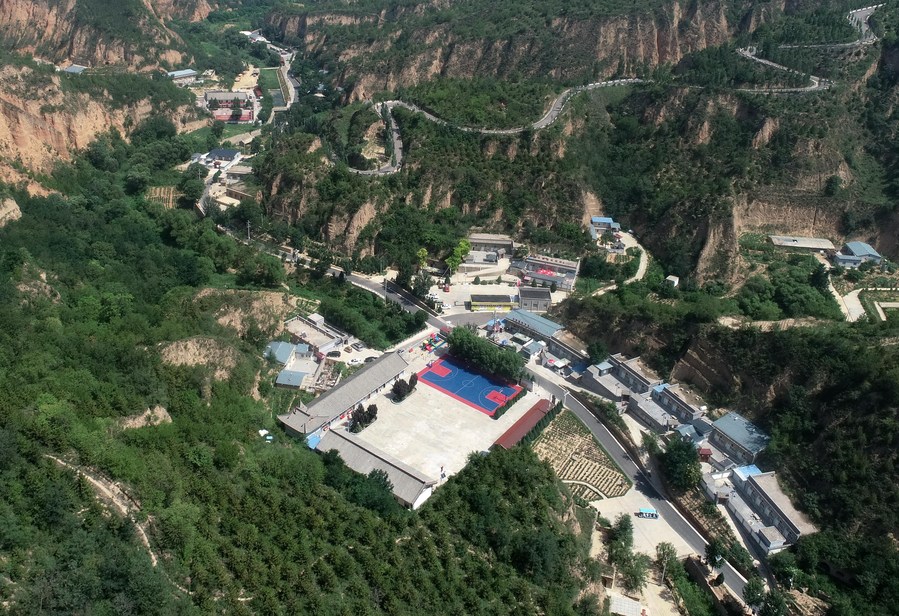Hard work on even harder land

Aerial photo taken on July 29, 2020 shows a view of Liangjiahe Village of Yanchuan County in Yan'an, northwest China's Shaanxi Province. [Xinhua/Zhang Bowen]
BEIJING -- Chinese President Xi Jinping is not only widely recognized as a hard-working leader, but also known to the public for his respect for manual labor.
Today, when people visit the village of Liangjiahe in Shaanxi Province, northwest China, they are greeted by swathes of lush, green farmland. Such scenery is largely attributed to a functioning check dam, which could not exist without the ingenuity and hard graft of Xi.
Xi arrived in Liangjiahe in 1969. During that period of time, he was just one of the millions of urban educated youth who were sent to the country's rural areas to "learn from the peasants."
The dam was first proposed by Xi, Party chief of the village at the time, and he personally took part in its construction. The young Xi worked from dawn to dusk, and not merely in a managerial capacity. He rolled up sleeves and trouser legs, and got his hands thoroughly dirty, shoveling dirt, packing earth, and carrying large stones to build the embankment. In the piercing cold of winter, he walked barefoot to scoop up ice from the ditch's bed.
Xi and his fellow villagers' work transformed the notoriously harsh, dry banks of the Loess Plateau's characteristic yellow earth into fertile farmland.
"Xi spared no effort in his work and never shrunk from hardship," recalled Wang Xianping, a Liangjiahe villager, adding, "he never tried to coast but worked even harder than us."
While the project illustrates how the hard labor of working people can transform the lives and prospects of a community, it had an even wider-reaching impact. After all, Xi's attitude toward these crucial members of society was cultivated in his seven years in Liangjiahe, and he has taken it with him throughout his political career, and across the country.
While working as the Party chief of Zhengding, north China's Hebei Province, he joined local villagers in hoeing and seed thinning as skillfully as an old farmhand. In Ningde, east China's Fujian Province, Xi personally participated in a canal renovation project.
Xi developed a hard-working ethic and has kept his respect for manual labor even to this date. As the country's top leader, Xi participated in tree-planting activities for 10 consecutive years. He was seen using a trench digger to plow the sand into trench and spread wheat straw on it during his inspection tour to Babusha Forest Farm in Gansu Province.
Xi also wrote to manual workers, visited them at construction sites, presented medals to model workers and heaped praises on them.
"No matter how the times change, we must always treat work and working people with reverence and respect, and we must always attach significance to the leading role of the working class and working people." These words by Xi encapsulate his decades of concern, support and respect for the workforce.
"People's beautiful dreams can be realized only through hard work," said the president, and he has long been committed to helping their dreams come true.
























